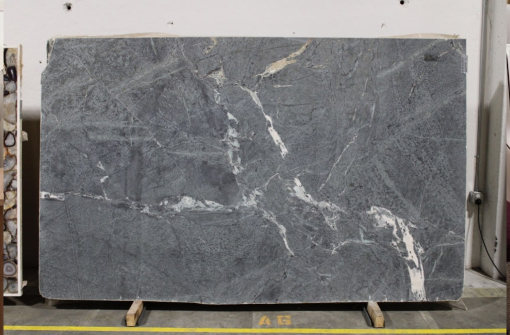Soapstone is a natural quarried stone. It’s a metamorphic rock that is called soapstone because of the soft, or soapy, feel of its surface, which is thanks to the presence of talc in the stone. Most American soapstone is sourced from the Appalachian mountain range, or imported from Brazil and Finland.


